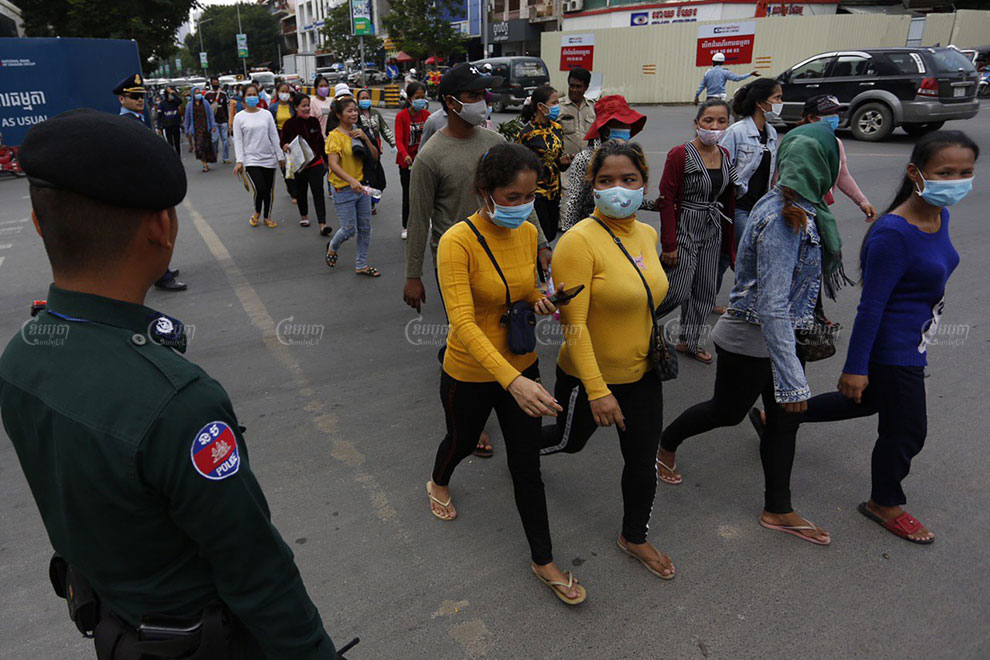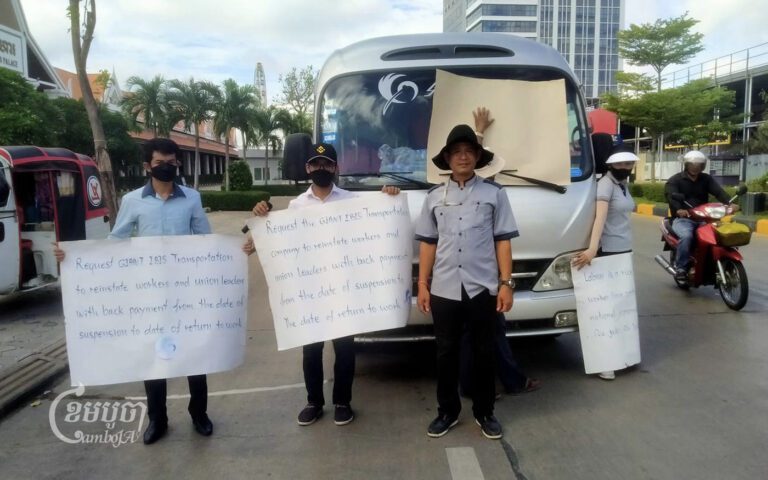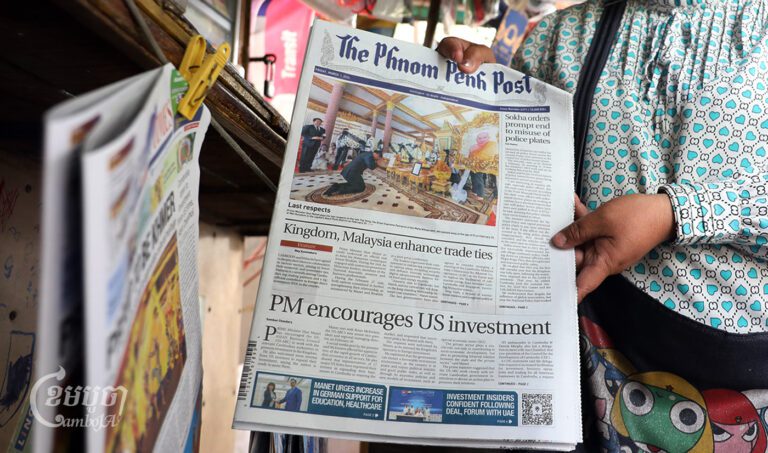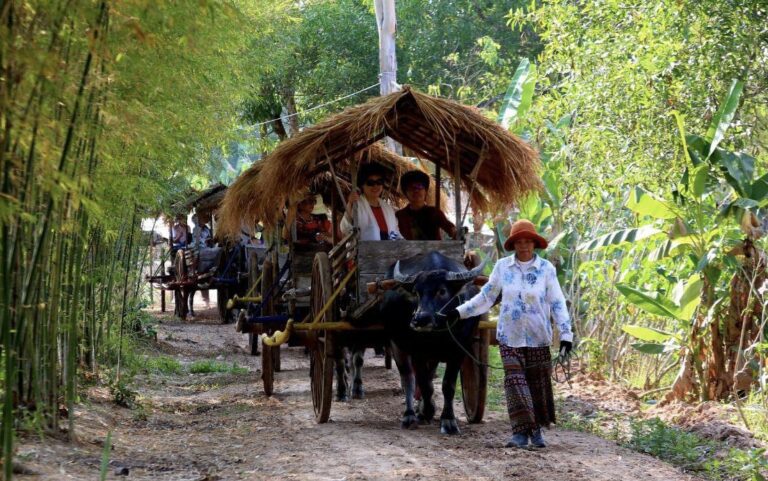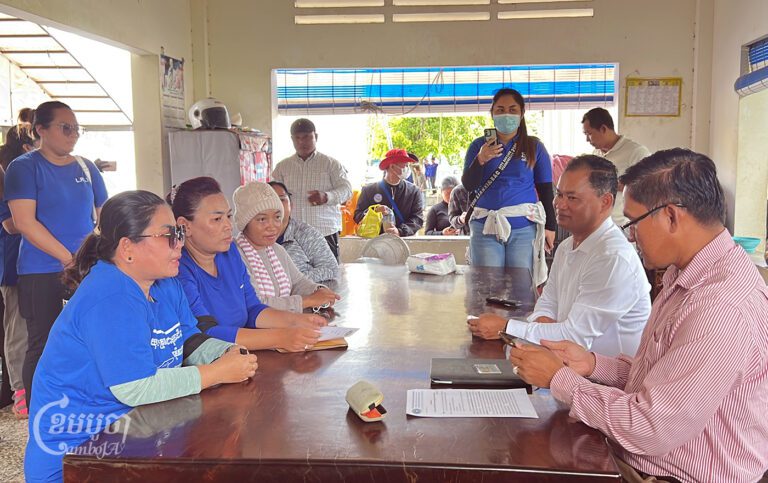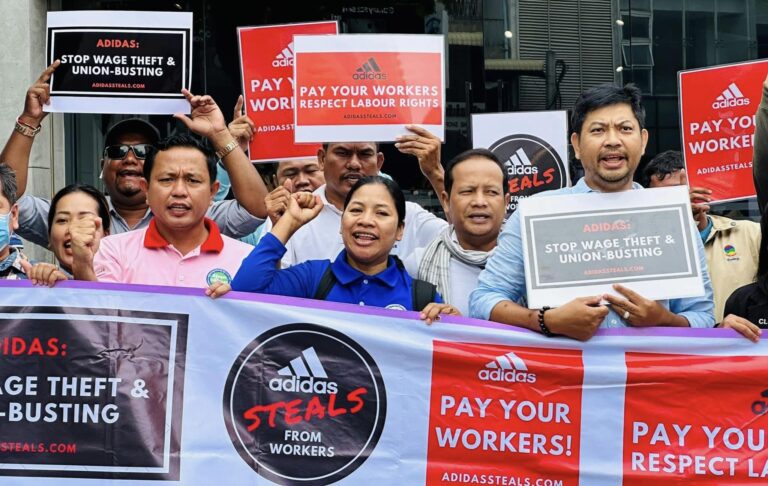Garment workers affected by factory closures are demanding full compensation as a report released by the Business and Human Rights Resource Center shows that thousands of Cambodians who produced clothes for some of the biggest global brands have yet to be paid wages owed to them since factories closed last year.
The report title “Wage theft and Pandemic Profits” features case studies from Cambodia, Myanmar, the Philippines, Bangladesh, and Ethiopia, involving allegations of unpaid wages and benefits for over 9,800 garment workers collectively, amid the pandemic. The report focused only on workers producing clothing for 16 international brands: Carter’s Inc., Hanesbrands, H&M, Levi Strauss & Co., LIDL, L Brands, Matalan, Mark’s Work Wearhouse, Next, New Look, Nike, PVH, River Island, Sainsbury’s, s.Oliver and The Children’s Place.
“Combined, these 16 brands have recorded over US$10 billion in profits in the second half of 2020 alone,” the report notes.
Lun Sophal, a former Violet Apparel garment factory, who has refused to accept partial compensation said that he and other workers are calling for the company to follow the labor law — which outlines how much a company owes workers upon closure.
“I still demand the compensation according to the law. I do not accept the amount which is estimated just about $1,000 — if they follow the labor law I would get up to $2,000 since I worked for the company for more than 10 years,” he said.
“I really do not understand why the factory announced they closed due to COVID-19 when its other three branches at the outskirts have remained open as normal,” he added. “They may just have taken this occasion to move factory from central to outskirt without compensation.”
Unable to find another factory job, Sophal has been working as tuk tuk driver.
“I am getting older, and I could not find job in garment factories anymore, so I decide to borrow money from the bank to buy a tuk tuk. But because of COVID-19, I do not have many customers, it’s so quiet. I must pay back $200 per month but because of COVID-19, I can only pay $100 per month,” he said.
The report highlights four case studies in Cambodia affecting more than 4,000 workers at Violet Apparel, Hong Sen Textile, Sepia Garment and Hung Wah, which all closed down during the pandemic, that have been partially resolved.
President of the Cambodian Confederation of Unions, Yang Sophorn, said that the union is now working with international labor organizations asking buyers to push the brands to step in.
Sophorn said Violet Apparel has offered workers an unacceptable compensation, less than what is owed them under the labor law.
“Since the company closed, most workers have not yet received the compensation because we do not accept the amount offered by company,” she said. “We ask the company to provide compensation according to the law.”
According to Sophorn, the companies are now trying to persuade workers to accept the offer.
“Some workers agreed to accept it but most workers who worked there for a long time refused,” she said. “For example, workers could have $2,000 in compensation, but in reality, the company offers [less than half], which is far different, and workers could not accept.”
Ung Chanthoeun, a former worker representative at Violet Apparel is one of those who agreed to accept the compensation.
“I decided to accept the offer of $1,000 because I don’t believe the company will provide full payment as the arbitration council rejected the case, so I decided not to further demand,” she said.
Chanthoeun has now returned to her hometown village in Svay Rieng province where she works as a farmer.
According to report, workers from the four garment factories above joined protests over unpaid wages after the factory suspended operations during the COVID-19 pandemic.
The workers are demanding compensation in lieu of prior notice, seniority indemnity, payment in place of unused annual leave, and five days’ worth of unpaid wages during the Khmer New Year holidays in April.
Violet Apparel reportedly makes clothes for Nike and Carter’s Inc. The report says that Nike said it ended its relationship with the factory 15 years ago, but “photographs taken by workers inside Violet Apparel and provided to labour rights advocates show order forms and thread lists for Nike products.”
A report from the Ministry of Labor Vocational and Training shows that in 2020, there were more than 170 garment factories that closed or temporarily suspended their operations, affecting tens of thousands of workers across the country.


